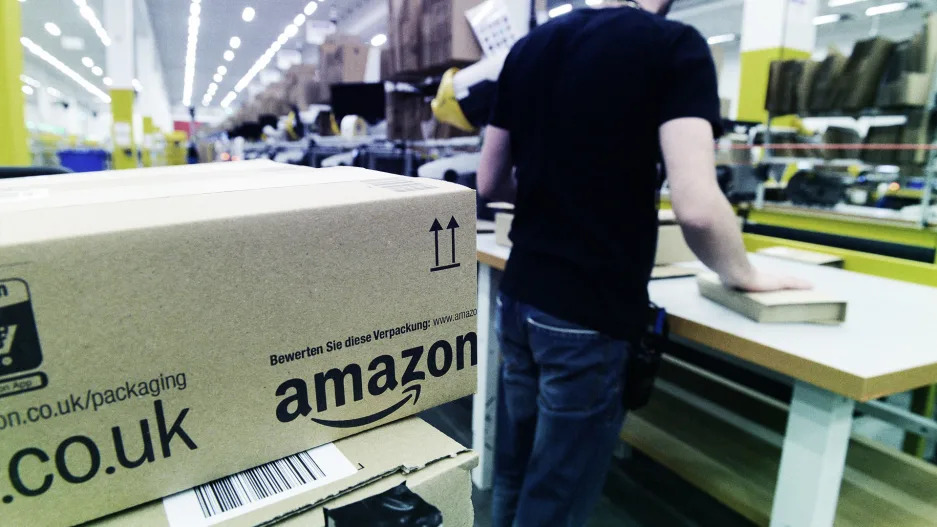
“Amazon just bought Whole Foods,” my friend texted me seconds after the announcement of the proposed acquisition. “It’s over. The world.”
This unease is widespread, and has raised new calls for breaking up Jeff Bezos’s impending monopoly by force. Surely the company, which now generates 30% of all online and offline retail sales growth in the United States, and already controls 40% of internet cloud services, has reached too far. The 3% hike in Amazon’s share price since the announcement—which would alone more than pay for the acquisition—may attest less to the deal’s appropriateness than to investors’ growing fear that missing out on Amazon means missing out on the future of the economy.
Whatever you may think of Jeff Bezos, and whether or not antitrust regulations can justifiably be applied to a company whose expansion doesn’t raise but actually lowers costs for end consumers, may be beside the point. Many of us get that something is amiss, but are ourselves so deeply enmeshed in the logic of last century’s version of free-market industrial capitalism that we can’t quite bring ourselves to call this out for the threat it poses to our markets, our economy, and even our planet.
The reason why monopolies were broken up in an industrial economy was that they tended to gain control over the platforms through which their products were distributed. The biggest oil company ends up controlling shipping and refineries, the biggest airline controls too many gates, and the biggest phone company controls the wires.
But in a digital economy, the platform is the business. Netflix content sells its platform. Apple’s devices sell its supposed “ecosystem.” Amazon’s book business, like Uber’s cab business, was just an easy foothold—the low-hanging fruit of an existing but inefficient marketplace—through which to establish a platform monopoly. From that beachhead, the company then pivots to other verticals.
The problem is, when an existing market is merely a means to another end, the company doesn’t consider the long-term effects of its actions. Amazon treated the book industry the same way companies like Walmart once treated the territories into which they expanded: Use a war chest of capital to undercut prices, put competitors out of business, become the sole employer in the community, turn employees into part-time shift workers, lobby for deregulation, and effectively extract all the value from a given region before closing up shop and moving to the next one.
This model of doing business—one that even a proto-fascist like Henry Ford would have considered obscene—has not served corporations well. As the data now reveals, corporate profits have been steadily decreasing relative to corporate size over the past 75 years. That’s right: Corporations are great at extracting all the value from a marketplace, but really bad at deploying the money they accumulate in the process. They take all the poker chips off the table, leaving nothing for the other players to exchange between themselves. And by sucking their customers and suppliers dry, such companies end up destroying the marketplaces on which they depend for revenue. It’s a form of financial obesity, where the only thing left for the company to do is acquire a new marketplace, extract all its value, and move on.
In the real world, such extraction took years, even decades to run through its cycle. In a digital economy, “network effects”—which is when a product or service’s value increases the more people who use it or work to create it —accelerate the cycle so that an entire taxi industry can be turned into an “internet of things” in a matter of months.
It’s not that internet founders are somehow more evil or rapacious than their forebears. It’s simply that when companies are platforms, survivability and scalability amount to the same thing. Just as winner-takes-all network effects lead to just one Taylor Swift and millions of penniless artists, these same dynamics promote the establishment of platform monopolies like Amazon.
The problem is less that these single platforms emerge than the fact that their business plans are taken from the obsolete play books of the industrial age, where extraction was the only game in town. While internet servers and financial capital can scale up almost infinitely, the real world cannot. Humans only have so much time and attention in a given day, and the topsoil only has so many nutrients in a given acre. As the merchants of abstracted digital products, like ebooks and streaming media, apply their same business models to the markets and environment on which real people depend for sustenance, power-law dynamics become a lot more dangerous.
Not that Whole Foods was ever a sustainable business in itself. Healthy food and sustainable agriculture are simply incompatible with year-round organic summer produce in all 50 states. However catchy the slogan, capitalism really has no room to be conscious. Of the three factors of production—land, labor, and capital—the “consciousness” part of the equation has always been provided by the places and the people.
Which means that if we’re actually going to confront the devastating potential of an Amazon monopoly, we have to come to grips with more than the way one company has seized control of multiple verticals. We must look instead at how we’ve employed our digital platforms solely in the service of an extractive industrial-age model of growth, and decide whether we’re capable of upgrading to a genuinely digital and distributed form of capitalism. This would mean adopting circular, even revenue-based models that sustain our marketplaces—instead of simply colonizing them.